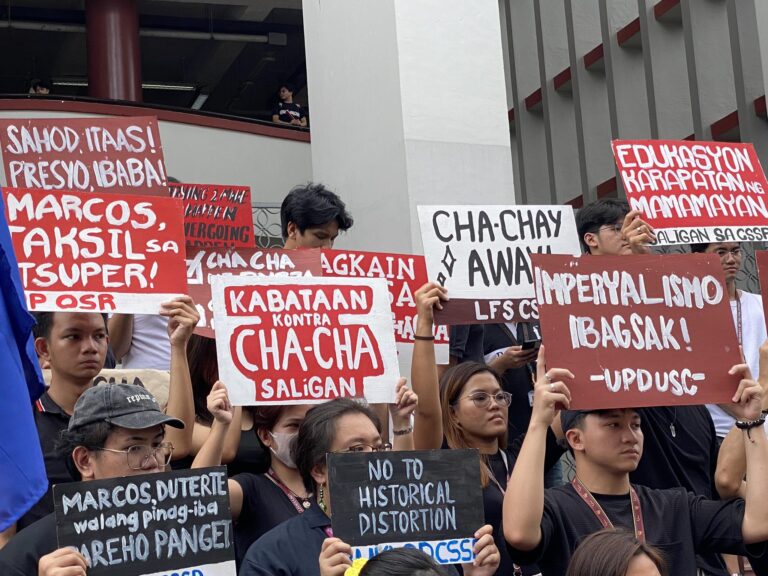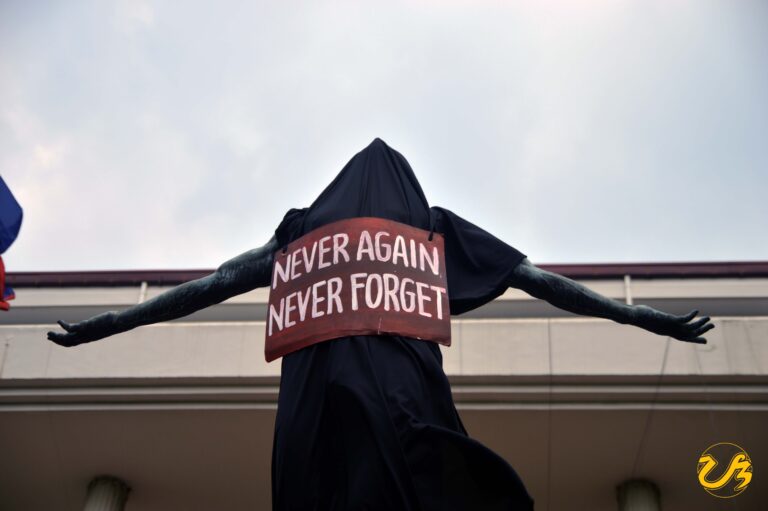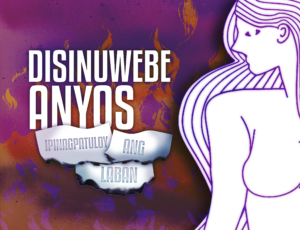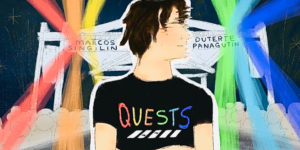Movements that seek to dismantle oppression and advocate for social justice should be the last place for abuse to thrive, and yet, within these very spaces, cases of gender-based abuse persist—a treachery has taken deeper and deeper hold, perpetrated not by outsiders but by the very friends, colleagues, and leaders we look to for fighting for our rights. Where a familiar face was once a beacon of safety, many of the same end up becoming nightmares.
Reports of abuse against women within organizations are not isolated incidents. These are the worsening symptoms of a patriarchal system that looks down upon women—that considers them weak and frail, and views them merely as objects or commodities; that normalizes, enables, and perpetuates abuse. Despite the ideas and principles these formations claim to espouse, none of them are immune to abuse.
In many instances, victim-survivors choose not to come forward. They weigh their personal safety against the potential collapse of an organization—a movement or community they deeply believe in. They fear speaking up about their abuse will ruin their career and put their personal safety at risk. Victim-survivors are frequently left unprotected and forced to relive their trauma in processes that prioritize neutrality over justice.
Organizations have a Constitution or Bylaws, and members who comprise these formations know that these are enshrined with processes for people like them. They want to trust the process and file cases. They go to the respective offices and confide in the people they can trust to help them. But when it all comes to pass, is the perpetrator really held to account? When they go back to org events after serving their sanction, are we prioritizing the safety of all our members, or are we putting them back in harm’s way?
Is our response sufficient when, year after year, abusers and harassers of all kinds continue to snake their way into our formations and enact harm against so many of us?
Even when internal mechanisms exist, they are often inaccessible, bureaucratic, and retraumatizing. Victims may be forced to prove their suffering in ways that expose them to further harm, while those in power weaponize due process, especially in cases where the perpetrator holds a high position in the organization. This is particularly true in numerous reports of abuse within advocacy and development groups, where survivors are pressured into silence because their abuser is deemed “too valuable” to the cause. Is our response sufficient when, year after year, abusers and harassers of all kinds continue to snake their way into our formations and enact harm against so many of us? Is this really what ‘justice’ means?
This prompts us to ask: what do we do when power structures within organizations that pledge to fight for safer spaces continue to mirror the patriarchal and feudal dynamics of society? Where do we run to, when movements that seek to dismantle oppression end up sheltering abusers and inevitably replicate the very violence they claim to fight? How do we provide a safer space for everyone when victim-survivors are met with retaliation, rebuke, skepticism, and even misogyny when they try to speak out?
When we are hurt and harassed by the state, we are angry, but we are aware this is what they do to critics and dissenters. But when we are hurt within our own circles, it is a betrayal. The contradiction feels piercing. It is in this dissonance that the need for change is becoming especially evident. If these formations genuinely seek to liberate the marginalized and aid the broader masses, they must first start by re-examining themselves.
The answer to these questions does not lie solely in organizational processes, rigid policies, or dismissing everything as a symptom of societal ills—it lies in putting to practice the radical reimagining of how we run our formations.We must move to prioritize survivors, actively dismantle the conditions that allow abuse to thrive, and foster a culture of genuine care and mutual protection.
One approach to understanding the perpetuation of abuse within organizations is to observe their cyclical and segmented nature. Lenore Walker substantiated such an approach with her “Social Cycle Theory”, which feminist and LGBTQIA+ movements often use to explain how abuse begins and repeats.
Abuse incidents often begin when abusers and their victims experience tension within their relationships and the abuser views the victims as a suitable outlet. Upon inciting an abusive incident, the abuser might apologize or retreat. In an organization, this may mean going through the formation’s disciplinary process and expressing regret for their actions. The victim, wanting to prevent such an incident from reoccuring, might refrain from speaking out further despite their justified fears. Organizations, on the other hand, might justify maintaining the abuser’s presence, due to their regret and punishment. However, tensions inevitably rise again, and an abuser might end up reoffending, while victims are forced into silence and, perhaps eventually, disaffiliation.
While themes of courage and resilience as well as community discussions to address problems head-on dominate online spaces, organizations have neglected caregiving as a revolutionary act. Due to the patriarchal system that continues to disempower women and marginalized communities, the domestic and social spheres that influence decision-making end up warping and minimizing the perceptions of co-members or ‘kasamas.’They become people we merely work ‘for’ and ‘with’. As a result, the notion of genuine service becomes merely labor we throw ourselves into–no longer friends we need to take care of or people we serve as well. How will we serve the people if we are no longer able to care for our comrades and ourselves?
How will we serve the people if we are no longer able to care for our comrades and ourselves?
Organizations must not only implement policies but also cultivate cultures where care is a daily practice—where survivors are centered, power is redistributed, and accountability is non-negotiable. For genuine safe spaces to be upheld and sustained within organizations, revolutionary courage must not be sold and staked apart from revolutionary care. Advancement requires not only moving forward but also looking after the people who struggle beside you and acknowledging and reaching a hand out to those following behind.
Revolutionary care begins with small acts: listening to and believing survivors, assessing and disrupting harmful dynamics, and refusing to enable those who perpetuate harm. The goal is not just to create spaces where harm is addressed after it happens but to build communities where harm is impossible to ignore, excuse, or repeat. Ultimately, liberation requires us a great deal. But if we can not start where we are, how will we take down the patriarchy that subsumes all of us and built this cycle in the first place?
The necessary action is simple but no longer optional: we must create environments where people—especially those with marginalized gender identities—can coexist without fear of violence, can count on their community to take account for harm, and reject those who perpetuate it. If movements truly seek liberation, they must start within their own ranks. Formations that do not protect their own remain stagnant and should not be considered a part of any liberatory movement at all. Most especially if it fosters reactionary, backward, and pretentious “change” that divides and excludes rather than sustaining inclusivity.
Organizations must collectively struggle to address contradictions and dismantle the patriarchal system that perpetuates abuse, both inside and outside their grasp.Only then can we achieve true justice for victim-survivors and dismantle systemic oppression and genuinely fight for liberation.






